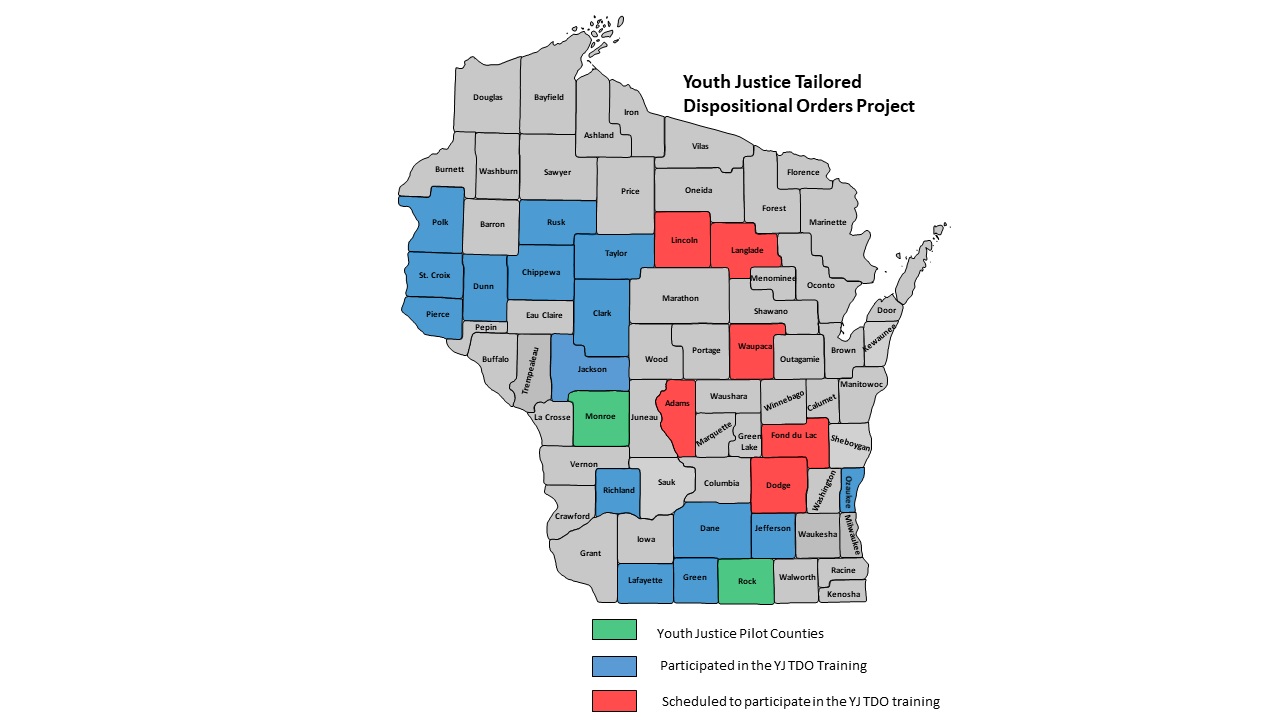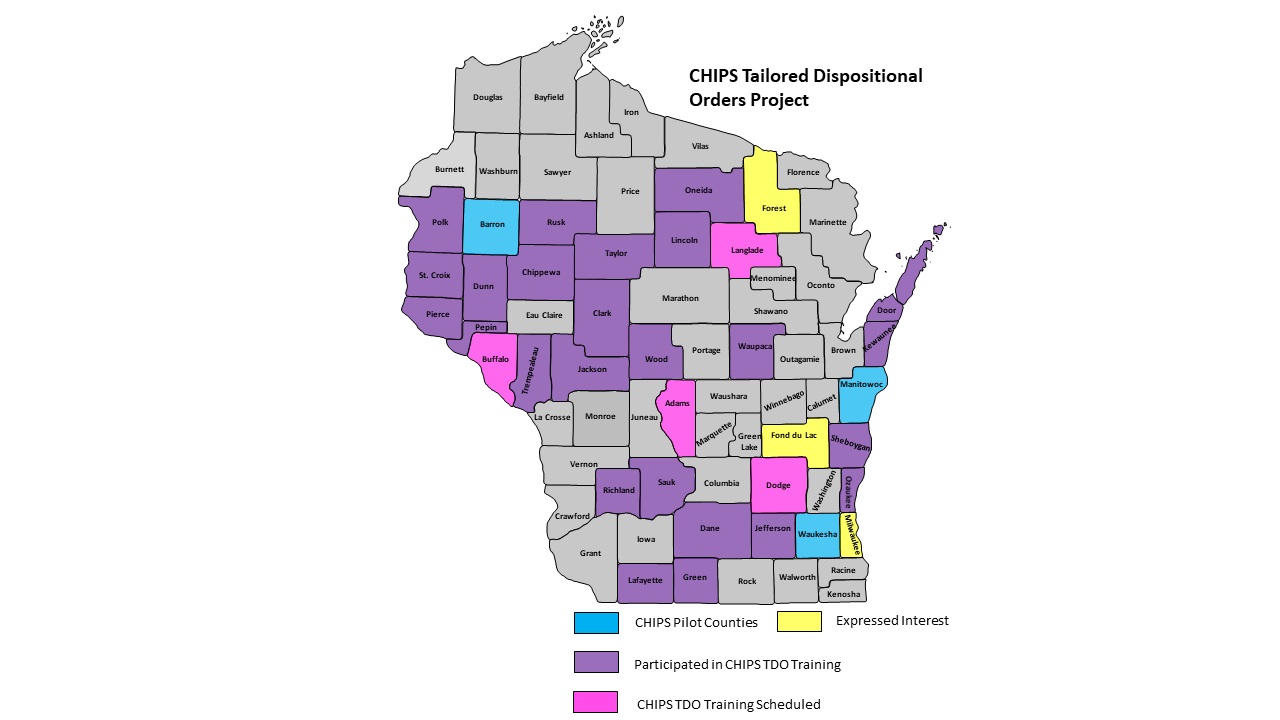The Tailored Dispositional Orders Project, a joint initiative led by the Children’s Court Improvement Program (CCIP) and the Department of Children and Families (DCF), is expanding after a successful pilot run in three counties during 2021-2022. The project is now being implemented in counties statewide looking to improve their CHIPS and/or Youth Justice conditions. The project aims to bring together county agencies, courts, and legal partners to collaboratively improve conditions for return and supervision while utilizing the SMART goals framework. Participating counties have reported a reduction in the number of conditions, language that is easier for parents and youth to understand, and prioritization of the most important conditions that parents and youth should begin working on first.
The project involves multi-disciplinary training with judges, prosecutors, adversary counsel, Guardians ad Litem, and child welfare professionals. The CHIPS Tailored Dispositional Orders training provides judges and attorneys with an understanding of how child safety is connected to the Conditions for Return. The Youth Justice Tailored Dispositional Orders training explains the Youth Assessment and Screening Instrument (YASI). Both trainings provide time to begin discussing ways to improve the county’s current conditions.

In CHIPS cases, the project changes the current process by tailoring the Conditions for Return to focus on the behavior changes that need to be made by the parents to safely return the child to the home versus a checklist of services. The CHIPS project aims to reduce the number of open cases and improve the time to reunification. The project seeks to reduce the number of conditions in Youth Justice cases while promoting an individualized case plan that highlights behavior changes. The Youth Justice project is designed to restructure conditions to include positive language and incentives.
When a county expresses interest, CCIP and DCF schedule a virtual introductory Zoom meeting with department supervisors, juvenile judges, the District Attorney’s office, and the Corporation Counsel’s office to explain the project, answer any questions, and ensure everyone is on the same page before scheduling a multi-disciplinary training.

The CHIPS and Youth Justice Tailored Dispositional Orders multi-disciplinary training can either be scheduled together or separately, depending on the county’s structure. All judges, attorneys, and social workers who handle either CHIPS or Youth Justice cases will be invited to attend. There is no cost for the training, and continuing education credits are offered to judicial officers, attorneys, and social workers. At the end of the training, the county stakeholders are asked to identify the next steps and determine whether they would like CCIP and DCF assistance with a follow-up meeting to continue the conversation around improving the language of the conditions.
Since statewide implementation began, 25 counties and two tribes have participated in the CHIPS Tailored Dispositional Orders training, and 15 counties have participated in the Youth Justice training. CCIP and DCF have four CHIPS and six Youth Justice training events scheduled this year -- and are working to plan additional trainings with counties and tribes who have expressed interest in the project.
Information regarding the Tailored Dispositional Orders Project can be found at www.wicciptraining.com/resources or www.dcf.wisconsin.gov/cwportal/tailored-dispositional-orders. Please contact Kristen.Wetzel@wicourts.gov for additional information or to schedule an introductory meeting.

